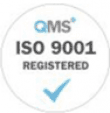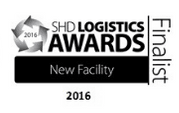Warehouse Management Systems
Gartner defines a warehouse management system (WMS) as “a software application that helps manage and intelligently execute the operations of a warehouse or distribution centre (DC).” WMS software provides solutions for companies looking to streamline operations, increase efficiency and reduce costs. WMS uses tools such as mobile devices, barcoding, and RFID scanning/sensing to deliver accurate and complete real-time information. Applications may be cloud-based, often on a subscription model, or be offered as an on-premise solution.
Running warehouse, logistics and operations efficiently without some type of warehouse management system (WMS) is time-consuming, error-prone, and unlikely to satisfy business objectives. The right WMS solution will reduce operating expenses, provide clear visibility into the storage and movement of goods, increase security and strengthen relationships with suppliers and customers.
What can a WMS do?
Warehouse Management solutions typically provide similar core functionality including:
- Receipt & put-away of goods into the warehouse.
- Management and prioritisation of replenishments and the movement of goods within the warehouse.
- Waving, allocation and the efficient picking of orders (by various picking strategies).
- Packing, dispatching and shipping orders.
- Inventory management throughout all processes, ensuring stock quantities and locations are tracked.
Despite the core functionality being similar, WMS products vary dramatically in their total functional breadth, scope, ease of implementation, their extended capabilities, flexibility and the ability of the solution to match a particular industry or operation.
Our team of warehouse consultants includes experts in warehouse management system (WMS) specification, selection, and implementation.
All WMS products have their own market areas where they work best (even the market leaders).
A “Bad WMS” is often the application of the wrong WMS to the wrong situation, or a poor implementation, rather than a fundamental failing of the WMS itself.
Success of a WMS implementation at one facility does not mean that it will be successful at a different facility.
An understanding of your strategy regarding route to market, logistics strategy and likely level of automation is required, along with an appreciation of the company’s wider systems environment and IT policies. You may select a WMS module from your ERP vendor, a standalone WMS, or a product with automation focus. Once again it is a question of determining what is best for your situation.
An initial requirements gathering process involving operational, project and IT stakeholders and putting together ‘user-stories’ will feed into a structured tender process, working with an appropriate vendor list to arrive at a decision based on a balanced scorecard of criteria.
Our WMS consultants can help with:
- Maturity analysis & initial business case for change
- WMS strategy (or surrounding strategic elements)
- Process mapping & requirements gathering
- Significant experience running WMS tenders
- Assistance with commercial & contractual negotiations
- Implementation assistance
If you believe your business needs assistance with implementing a Warehouse Management Systems, please contact us on 01926430883 or fill our Contact form out.












